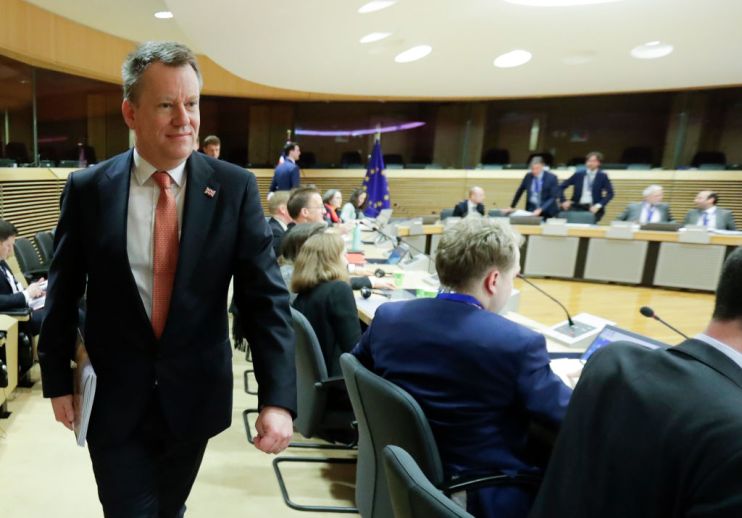Brexit trade negotiations: UK increases preparations for no-deal

The UK is gearing up preparations to walk away from Brexit trade negotiations with Brussels in June and to exit the EU transition period on 31 December without a deal.
The third round of negotiations were completed on Friday, with both sides expressing frustration at the slow progress of talks.
UK chief negotiator David Frost has expressed his dismay that EU negotiators have not moved on the issue of EU access to UK fishing waters and business competition regulations.
There will be one more weeklong round of negotiations in early June before both sides decide if it is worthwhile continuing with talks.
If no deal is struck, then barriers to trade will be erected between the UK and EU in the forms of tariffs on World Trade Organisation (WTO) terms.
The Sunday Times reports the government is now convening regular meetings of the government’s no-deal committee, called XO, which is led by Cabinet Office minister Michael Gove.
Civil servants who were working on the coronavirus crisis have now also reportedly been moved to work on no-deal preparations.
A source told The Times: “XO is moving to a more regular rhythm over the next week or so.”
On Friday, Frost said UK and EU negotiators had “made very little progress towards agreement on the most significant outstanding issues” in the latest round of talks.
He also said that EU negotiators were not treating the UK as an independent state seeking a free trade deal.
The two most contentious issues are fishing policy and the so-called level playing field of regulations.
Brussels is demanding to maintain the same fishing access to British waters for its member states as when the UK was in the EU.
The EU is also demanding the UK signs up to a level playing field of regulations to ensure British businesses do not have a long-term competitive advantage.
In return, the UK would be able to trade with the EU on a zero-tariff basis.
However, the UK has said repeatedly the position of the EU on these two areas is not tenable.
On Friday, Frost said: “The major obstacle to this is the EU’s insistence on including a set of novel and unbalanced proposals on the so-called ‘level playing field’ which would bind this country to EU law or standards, or determine our domestic legal regimes, in a way that is unprecedented in Free Trade Agreements and not envisaged in the Political Declaration.”
A senior UK official said that there would be no deal possible unless EU negotiators deviated from the mandate it had been given by Brussels politicians.
“The political reality has got to be accepted before we can make progress,” they said.
“The EU wants a half way house on what we’re willing to see on level playing field and what they’re willing to see, and on what we’re willing to see on fisheries and what they’re willing to see.
“There isn’t a halfway house, you can’t split the difference. You either control your own waters or you don’t.”
Chief EU negotiator Michel Barnier fired back on Friday, saying the UK were not being realistic in talks.
“I have to tell you, today there seems to be a real lack of understanding of the objective, mechanical consequences of the British choice to leave the single market and customs union,” he said
“To make progress in these negotiations, if it is the UK’s intention to get an agreement with the European Union, then the UK will have to be more realistic.
“Trade policy is no longer what it was. We’re no longer in the 1970s – a time where trade agreements were solely to dismantle tariff barriers.”